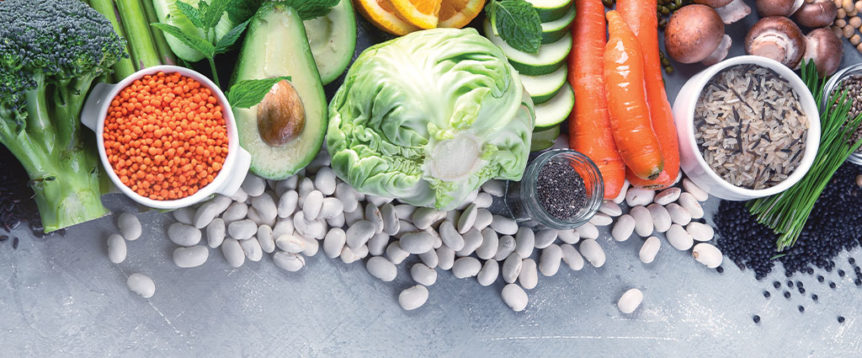You’ve heard that eating less animal-based protein is good for you. But just how much of a difference can this simple diet tweak really make? Well, it turns out eating more plant-based proteins can have a big impact, not only when it comes to improving your health, but also for the environment, your grocery budget and more, says Julieanna Hever, R.D., a dietitian who specializes in plant-based diets. Here are just several of the benefits of eating plant-based meats that may inspire you to incorporate more of these foods into your diet.
You’ll save money.
It’s easy to assume that adding more plant-based foods to your diet will ratchet up your grocery bill. After all, fresh produce can be expensive! However, research published in the Journal of Hunger & Environmental Nutrition shows that a plant-based diet can actually make your grocery budget stretch further. According to the study, a meat-based diet costs about $53 per person per week—whereas a plant-based diet costs just about $39 per person. That’s about 27 percent less!
“Look at your grocery bill and it’s likely meat and other animal proteins that are most expensive,” says Dawn Jackson Blatner, R.D.N. “When you fill your cart with whole grains, beans, lentils, fruits and vegetables, it’s a slam dunk on saving money.”
It’ll make a big impact on the environment.
Here are a few facts that may shock you: Raising and slaughtering animals for food causes more greenhouse gas emissions than the entire transportation sector combined; a staggering 91 percent of deforestation is happening so that livestock can graze and food can be grown for animals that will ultimately be slaughtered; and scientists at the United Nations have made the bold claim that raising and killing animals for food is “one of the major causes of the world’s most pressing environmental problems.”
However, little changes can make a big difference, says Lynell Ross, a certified health and wellness coach, nutritionist and National Diabetes Prevention Program Instructor. “If everyone in the U.S. switched from animal meat to plant-based meals just one day a week, we would protect the Earth from tons of carbon emissions.”
There’s a good chance you’ll shed pounds.
For the nearly 50 percent of Americans actively trying to lose weight this year, following a plant-based diet can help, according to research. One recent meta-analysis that looked at a dozen studies found that those who followed a vegetarian diet lost significantly more weight than their meat-eating counterparts. Another study found that not only can plant-based diets lead to more weight loss when compared with diets that contain meat, but they also lead to lower inflammation—an outcome that can improve overall health.
“Plant-based diets tend to be very high in fiber,” says Hever, “which means you’ll optimize satiety while eating fewer calories.”
And you’ll slash your risk of disease, too.
When you lower the levels of inflammation in your body, you reduce your chances of health problems. It really is that simple, says Jackson Blatner. It’s not that inflammation is all bad; it’s an appropriate immune system response to a foreign invader (say, a bacteria or virus) that actually helps keep us healthy. The problems start happening when your body’s inflammation response doesn’t quiet down when your immune system isn’t threatened by a foreign invader—and you have low-grade chronic inflammation that doesn’t go away. That’s when inflammation can lead to heart disease, diabetes, arthritis, depression and even cancer. The good news? Your diet can play a big role in lowering chronic inflammation, and plant-based meats are a great place to start.
It’s also an easy way to add variety to your diet.
Research shows that plant-based diets high in fiber promote a healthy gut microbiome, which is known to improve everything from immunity and gastrointestinal function to reducing the risk of inflammation and disease. What scientists also know is that variety is key. In fact, University of California at San Diego researchers found that consuming a whopping 30 different plants in a given week was the greatest predictor of gut microbial diversity. Adding that many plant-based foods to your diet isn’t actually as daunting as it may sound, says Jackson Blatner.
“Little choices can really add up, like choosing a few different fruits and veggies than your typical go-tos the next time you’re at the store, or adding a handful of seeds, nuts or a squeeze of citrus to your meals,” she says. “Not only will this variety feed all of the good bacteria in your gut, but it’ll make your meals more exciting, too.”

